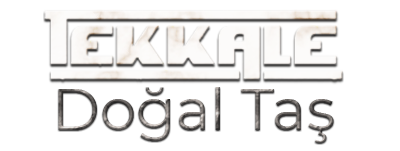What Defines an Information Blog?
An information blog serves as a hub for digital content designed to educate, inform, and engage readers. Unlike entertainment-focused platforms, these blogs prioritize accuracy, depth, and value. Whether covering technology, health, or finance, an information blog delivers actionable insights through well-researched articles, tutorials, and guides. Its core purpose is to empower audiences with knowledge, making it a cornerstone of modern online learning.
Why Information Blogs Are Essential for Modern Audiences
In today’s fast-paced world, people rely on digital content to stay informed. An information blog meets this demand by offering structured, reliable resources. From DIY projects to industry trends, these blogs help users navigate complex topics. Their relevance lies in bridging gaps between academic research and everyday application, ensuring readers access credible online resources.
Key Characteristics of High-Quality Information Content
- Accuracy: Verified facts and expert-reviewed data ensure trustworthiness.
- Depth: Comprehensive coverage avoids superficial summaries, diving into nuances.
- Accessibility: Clear language and multimedia enhance understanding for diverse audiences.
Steps to Launch Your Information Blog
Begin by defining your niche and audience. Choose a platform like WordPress or Medium, then build a content calendar. Focus on blogging tips that emphasize consistency and quality. Leverage SEO strategies to improve visibility, and integrate online resources to add credibility. Finally, promote your work through social media and partnerships.
Choosing the Right Niche for Your Information Blog
Select a niche with sufficient demand but limited competition. Use tools like Google Trends or keyword analyzers to identify gaps. Ensure your topic aligns with your expertise and passion, as this ensures authentic digital content. Avoid overly broad subjects; instead, target sub-niches like “beginner’s information blog for coding” to attract focused audiences.
Tools and Platforms for Managing an Information Blog
- Content Management Systems (CMS): Platforms like WordPress streamline publishing and design.
- SEO Tools: Plugins like Yoast or Ahrefs help implement SEO strategies effectively.
- Analytics Dashboards: Google Analytics tracks reader behavior and content performance.
Strategies for Consistent Content Creation
Set realistic goals, such as publishing one post per week. Repurpose existing digital content into different formats, like videos or infographics. Collaborate with guest writers to expand your reach. Use blogging tips from established information blogs to refine your process and maintain quality.
Monetization Opportunities for Information Bloggers
Monetize your information blog through affiliate marketing, sponsored posts, or premium memberships. Offer courses or downloadable guides as additional revenue streams. Utilize online resources to create lead magnets, such as free e-books. For advanced options, consider https://luckytiger2.com/ for tailored advertising solutions.
SEO Best Practices for Maximizing Visibility
Optimize titles and meta descriptions with targeted keywords. Use header tags (
,
) to structure content logically. Incorporate SEO strategies like internal linking and mobile responsiveness. Regularly update old posts to maintain relevance and improve search rankings through digital content optimization.
Engaging Your Audience Through Interactive Content
Engaging Your Audience Through Interactive Content
Boost engagement with polls, quizzes, and comment sections. Encourage discussions by asking questions in your posts. Share user-generated content to foster community. Interactive elements not only increase dwell time but also align with blogging tips for building loyal readerships.
Common Mistakes to Avoid When Starting an Information Blog
- Ignoring SEO strategies: Failing to optimize content reduces discoverability.
- Overloading with digital content: Quality trumps quantity; avoid spamming readers.
- Neglecting audience feedback: Disregarding comments or surveys can alienate your community.
Future Trends in Information Blogging
Emerging trends include AI-driven content creation, voice search optimization, and interactive storytelling. As online resources evolve, bloggers must adapt to new formats like podcasts and video series. Staying ahead requires continuous learning and integrating SEO strategies tailored to these changes.
Measuring Success: Analytics for Information Blogs
Track metrics like page views, bounce rate, and conversion rates using tools like Google Analytics. Analyze which digital content performs best and refine your strategy accordingly. Regular audits help identify areas for improvement, ensuring your information blog remains competitive.
Case Studies: Real-World Examples of Thriving Information Blogs
Successful information blogs like TechCrunch and The Balance demonstrate the power of consistent digital content. They leverage SEO strategies and blogging tips to maintain authority. By studying their approaches, aspiring bloggers can replicate their success while adapting to unique niches and audiences.
